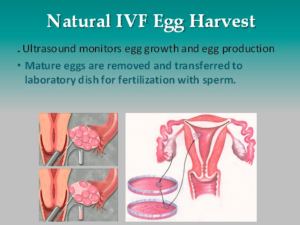Dark Clouds and Silver Linings

There’s an old proverb that every dark cloud has a silver lining, that if only you can find it, there’s some potential good to come out of even very negative experiences. I’m not at all certain that’s true. In fact I’m pretty sure it isn’t true. I think many dark clouds have silver linings, but some things just plain stink.
I’m happy to say that, even in its darkest days, our infertility experience was not entirely without its silver lining.
Wait… what?!
I know, I know, this from the guy who spilled a lot of ink in his last several posts talking about the many ways our challenges in starting a family were stressful, expensive, isolating and painful. But I’m also here to tell you that, whatever the outcome of your infertility experience, there really can be some good to come out of the process, no matter how difficult and no matter the result.
I know you may not believe it now, but having lived through it, I can actually point to a number of good and important things that came out of our experience. Here’s just a sample:
It clarifies your values and priorities – As discussed in my post about the costs of treatment, one inevitable and mandatory outcome of infertility is questioning a lot of things. If starting a family isn’t working, you will rapidly come up against questions about your priorities, values, needs and beliefs.
The question of money from my earlier post is just one small aspect of this. People of faith may question their own worthiness, or their creator, or lash out or lose that faith. If only one partner is medically infertile, they may fear rejection, blame or divorce, and the other might even, in their deepest darkest moments, entertain those very ideas. Depending on what the root cause is, you may consider adoption, egg donors, sperm donors or surrogates, all of which bring incredibly complicated questions about morality, preferences, tolerances and risks.
“Will they be teased if they don’t look like me? Will I love them like I would my own? Will it never feel like ‘my’ child? Will they grow up to hate me? What if they have medical issues?” And on and on. This process demands, demands, that you and your partner tackle these hugely challenging questions and take a painfully honest look at what you want, what you are willing to risk and how far you are willing to go. There are no “right” or “wrong” answers, but there are unavoidable questions. Facing them together with your partner can be hugely illuminating and teach you more than you can imagine about yourself.
It forges stronger bonds between great partners – If your relationship with your partner is healthy and committed, the travails of infertility can be a hugely powerful bonding experience. Not pleasant in the doing, to be sure, but priceless in the “having done”. Like steel forged in the infernal heat of the crucible, it can sometimes take unbearable conditions to produce something durable and long-lasting.
On the worst of our worst days, when all seemed impossible, not just with getting pregnant but with our marriage, our mental health and our happiness (all of which felt frayed to breaking), I would tell myself to “love her more”. When it seemed least easy to do was when I had to love my wife more than ever. When you can look at a partner at their absolute lowest point, both of you filled with anger or resentment, devoid of self-esteem and utterly without happiness, and in that moment commit yourself to love them more than ever, you are creating the bonds that will prove unbreakable when better times return.
It creates incredible friendships – As we’ve often discussed, infertility is messy. It’s, medically, physically, financially and socially uncomfortable. Unless they share the experience, it’s something almost no one wants to talk about, and no one wants to hear about. This doesn’t make your friends and family bad people. It’s just natural that anyone who doesn’t share a certain negative experience can’t relate very well to your experience. Add in the usual reticence to discuss medical issues, sex or family politics (jackpot! we’ve got all three here!), and it’s hardly a mystery that you’re not getting a lot of compassion or inquiries from your fertile friends.
What Cathy and I have both discussed before though is that, because no one talks about this stuff, you may already have friends who do in fact understand what you’re going through, and you never even knew it. Like any deeply challenging experience, be it cancer or combat, there is a solidarity that comes from building bridges with those who understand. If you can discuss feelings and experiences and pains and triumphs that most don’t share, the ones who “get it because they’ve been there” can often become much closer friends as a result of that common experience. Like any comrades-in-arms, the shared understanding of battles past creates relationships that nothing else can forge in the same way.
Is infertility easy? No. Would it be far happier and easier not to have to deal with it? Of course. But if you do find yourself fighting this particular battle, know that no matter the outcome, there is some good that can come out of it. It may not feel that way now if you are in the midst of the fight, but I promise that in the days and months and years to come, there will be a silver lining.
– Eric



